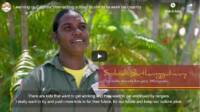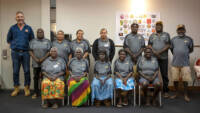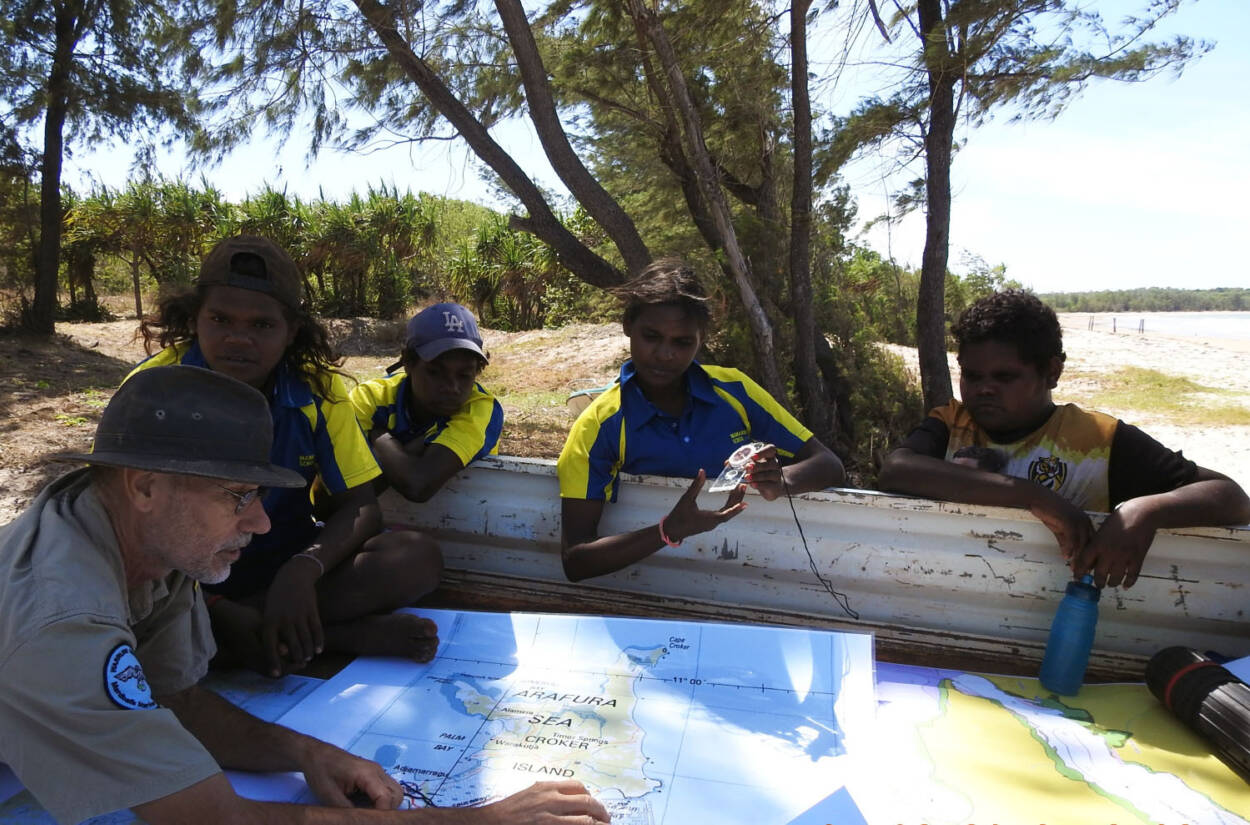Learning on Country
The Learning on Country (LoC) Program is a joint initiative between Aboriginal ranger groups and local schools across 15 Top End remote communities, with a focus on integrating ‘both ways’ learning into school curriculums. It’s this combination of curriculum and culture that will support remote Aboriginal students to walk strong in two worlds.
The LoC Program enjoys strong community and institutional support because it brings together two knowledge systems that link culture and curriculum. The ‘two toolbox approach’, which incorporates both Western and Indigenous knowledge systems to deliver culturally appropriate education and training, supports remote students’ training and employment pathways.
The LoC Program is delivered to secondary students with a key focus on the senior secondary student cohort. The teaching and learning programs are developed collaboratively between school and ranger staff, with a focus on field-based activity and experiential learning. Activities include a wide range of ranger groups' projects and responsibilities around land and sea management and modelled by cultural knowledge-based activities as directed by Traditional Owners.
Objectives of the program are to increase school retention to Year 12 or equivalent, increase transition rates to further education, training and employment, and to increase inter-generational transmission of Indigenous knowledge and practices.
School and ranger staff draw on Traditional and Western knowledge systems to develop integrated field and classroom-based activities. In this way, LoC students have a culturally appropriate education and a clear pathway to employment. Field workshops and school-based learning activities are linked directly to NTCET, Australian Curriculum and VET Certificate outcomes.
The LoC Program is both an incubator and succession planning solution for various industry sectors involved in the sustainable use of land, sea and conservation management and in many ways the LoC Program has come to be regarded as developing the next generation of rangers and traditional custodians.
Land and sea management groups have indicated significant growth over the decade, creating business opportunities in cultural and natural resource management particularly for Indigenous populations.
The 15 participating schools across the Top End are:
- Galiwin’ku
- Yirrkala
- Yirrkala Laynhapuy
- Maningrida
- Angurugu
- Milingimbi
- Ramingining
- Gapuwiyak
- Borroloola
- Beswick
- Barunga
- Ngukurr
- Numbulwar
- Umbakumba
- Gunbalanya
The Learning on Country Program is funded by the National Indigenous Australians Agency and administered by the Northern Land Council.
Related Stories

Connecting school students to learn on country
Oct 11, 2019
A three-day Learning on Country forum took place in Darwin in September, involving more than 80 school principals, teachers, rangers and ranger coordinators, Learning on Country coordinators and Indigenous cultural advisors.

Learning on Country: connecting school students to work on country
Sep 9, 2019
More than 80 school principals, teachers, rangers and ranger coordinators, Learning on Country coordinators and Indigenous cultural advisors came together for a three-day Learning on Country forum in Darwin this month.


